Who is a radio technician and what does he do?
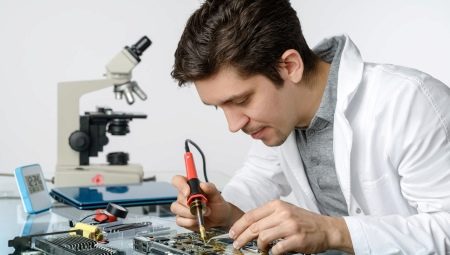
Now there is a huge amount of radio equipment on the market, and all of it needs competent adjustment, and in the event of a breakdown - in a qualified repair.
A radio technician is exactly the specialist that is required in this case. From the article you will find out who it is and what it takes to become one.
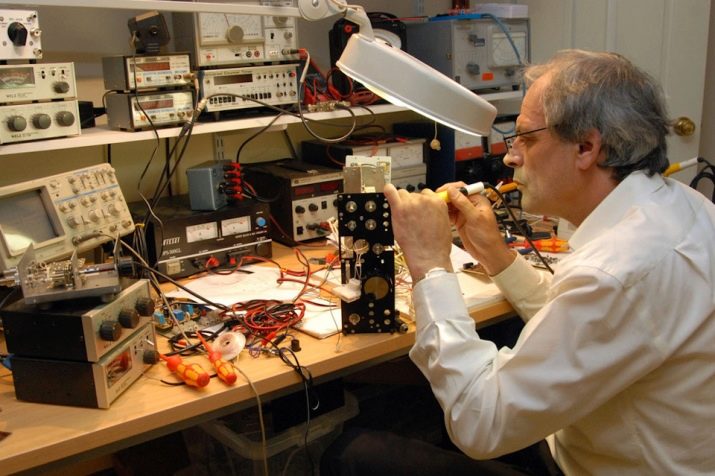
Description
Radio engineering is a fairly extensive section, and it is divided into two subsections: maintenance and design. A radio technician is popularly called a professional in the field of instrumentation. The full and official name of such a profile is "radio apparatus construction". He is very similar to a radio mechanic, but there are differences. If a mechanic is only obliged to find and fix breakdowns in electronic systems and devices, then a technician, in addition, must still be able to develop them on his own.
To get such a profession and to work successfully in the field of radio engineering, a person needs to have some special qualities. That is, not everyone can master this specialty. At a minimum, a future specialist in this field should have:
- quite high intelligence - you will have to think a lot;
- have an excellent memory;
- know and love technology;
- be able to engage in sedentary work for a long time;
- be very collected and if you need to instantly concentrate.
He must also be able to "read" any, even the most complex schemes and perform manual manipulations.
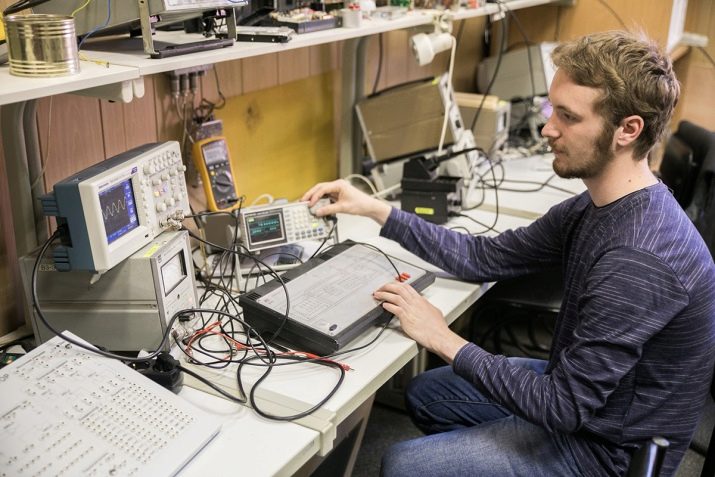
Responsibilities
The radio technician is in wide demand and can work in many places. His responsibilities at a specific workplace are determined by the job description. However, there are a number of common features. The specialist is obliged:
- have a secondary or higher education in this area;
- carry out repair work and carry out maintenance of electronic devices;
- be able to design and develop devices;
- be able to "read", develop and design circuits for electronic devices;
- have a high degree of responsibility, since a lot depends on a specialist in the field of repair and design of devices, where even the slightest negligence can lead to serious consequences;
- be able to configure and maintain the radio equipment assigned to it;
- before connecting, it is imperative to test new systems and equipment;
- understand and be able to maintain documentation in the specialty;
- constantly improve their level and qualifications in order to keep up with new trends in radio technology.
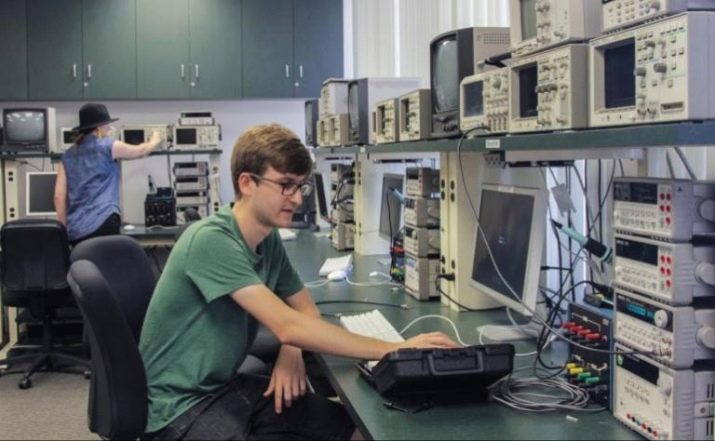
Knowledge and skills
A professional radio technician must have a broad outlook, be able to do a lot and know even more in the field of electronics:
- understand and understand at a high level in general physics;
- have engineering skills;
- understand the principles on which the operation of electronic devices is based;
- have the ability to design and develop;
- be able to repair and maintain, perform high-quality installation and dismantling of equipment;
- study closely and skillfully understand the schemes;
- know well all soldering devices and be able to work with them;
- to fully carry out the identification of defects in equipment and systems;
- be able to work on a computer with special automated programs for designing devices and planning technologies for mounting devices.
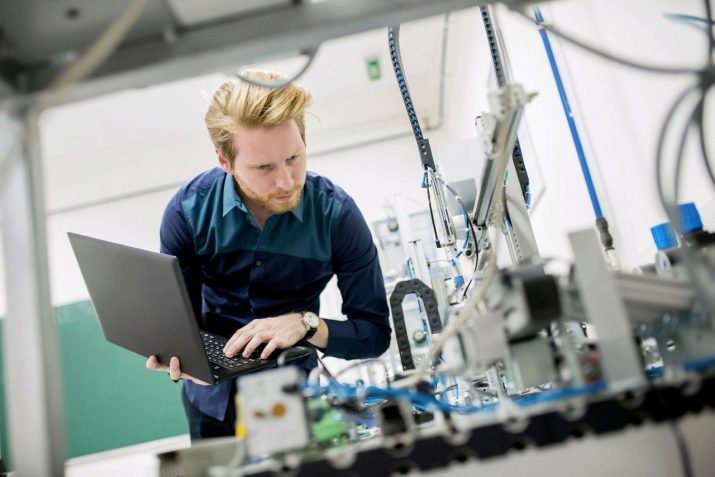
Education
It should be noted that this specialty requires a fairly high level of education. At the very least, you need to study at a technical school or college, and it is better to graduate from an institute.
Studying at a university opens up more opportunities, but also takes more time. Applicants who have completed secondary education and passed exams in mathematics, Russian language, computer science and information and communication technologies enter the institutes. At this stage, some specialties can be studied in evening departments or in absentia. You can go to college after the 9th grade.
All major cities have educational institutions that train radio technicians. The most famous are the Moscow Aviation Institute, the Moscow Technical University of Communications and Informatics, the Far Eastern Federal University and others.
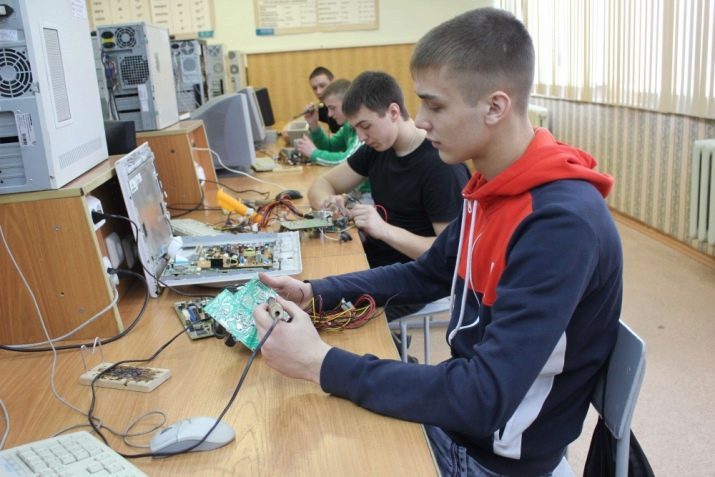
At the faculties of telecommunications, infocommunication technologies and communication systems, you can get an education at the bachelor's level, and this will take 4 years. If you are attracted to work in the field of research, then you have a direct road to a master's degree. But it is worth remembering that this is another year of study.
If you want to get started quickly, then you are on the road to college. Many have heard of the rather well-known Moscow Technical School of Space Instrumentation of the Moscow State Technical University. N.E.Bauman, but there are many other worthy establishments. Training can take place both at the expense of the state and at personal expense.
The development of electronics is moving forward by leaps and bounds. Not everyone can cope with the ever-growing body of knowledge required to keep up with the state of the art in radio technology. The knowledge acquired in an educational institution becomes obsolete.
And in order to be in the mainstream, a specialist needs to constantly independently learn and improve.
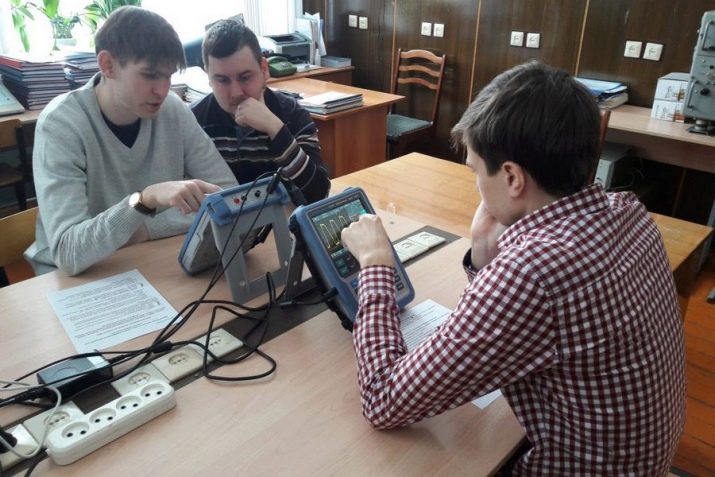
Place of work
Qualified radio technicians are quite in demand, they always have the opportunity to choose where to go to work, be it the public sector or the private.
The main vacancies for this specialty exist:
- at enterprises for the repair and production of radio devices and equipment;
- in stores selling and servicing computers;
- in various research institutes, design bureaus;
- at defense enterprises.
So the chance of finding a good job is quite high, because it is quite difficult and not everyone can afford it.
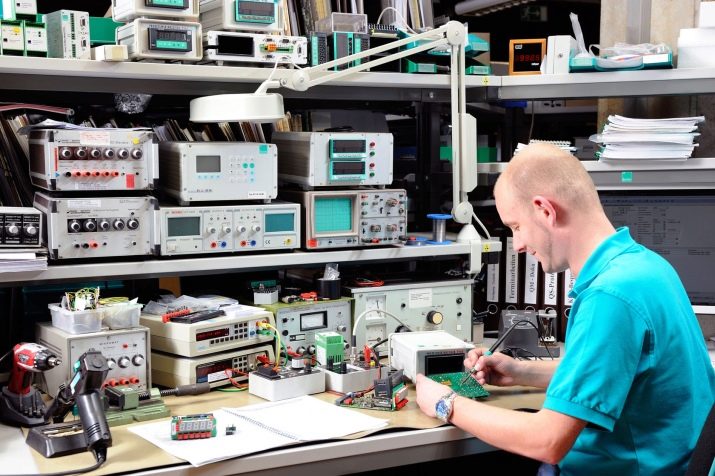
The salary
It should be understood that wages largely depend on the region and the specific place of work. For example, in Moscow it is an order of magnitude higher and amounts to 40 thousand rubles, the upper level is about 170 thousand. rubles. In the rest of Russia, a radio technician can receive from 20 to 60 thousand rubles. The least amount of money is earned in a studio for the repair of equipment, and the maximum earnings are from specialists who work “in the fields”, installing and setting up beacons and radio towers for the oil industry.









